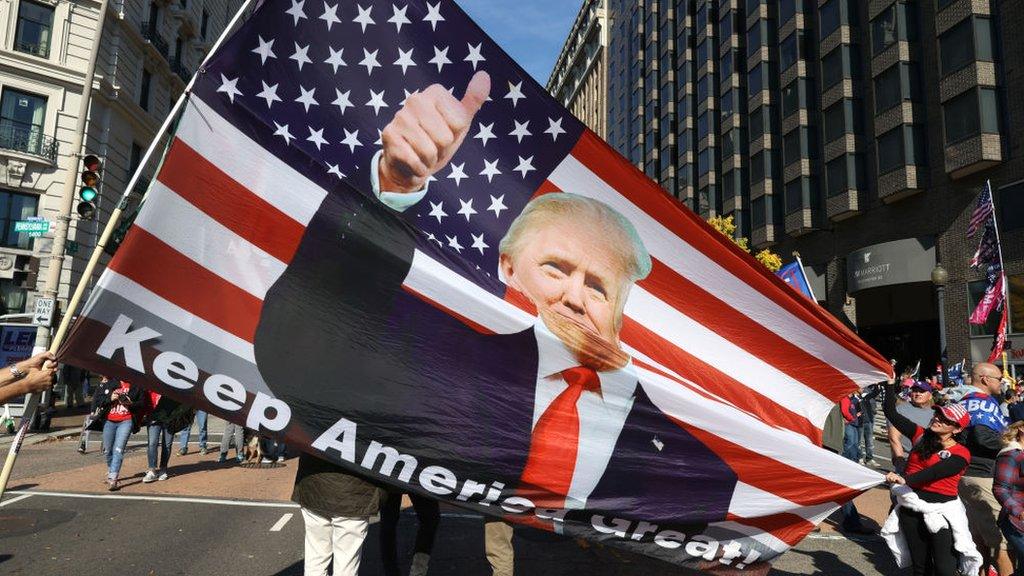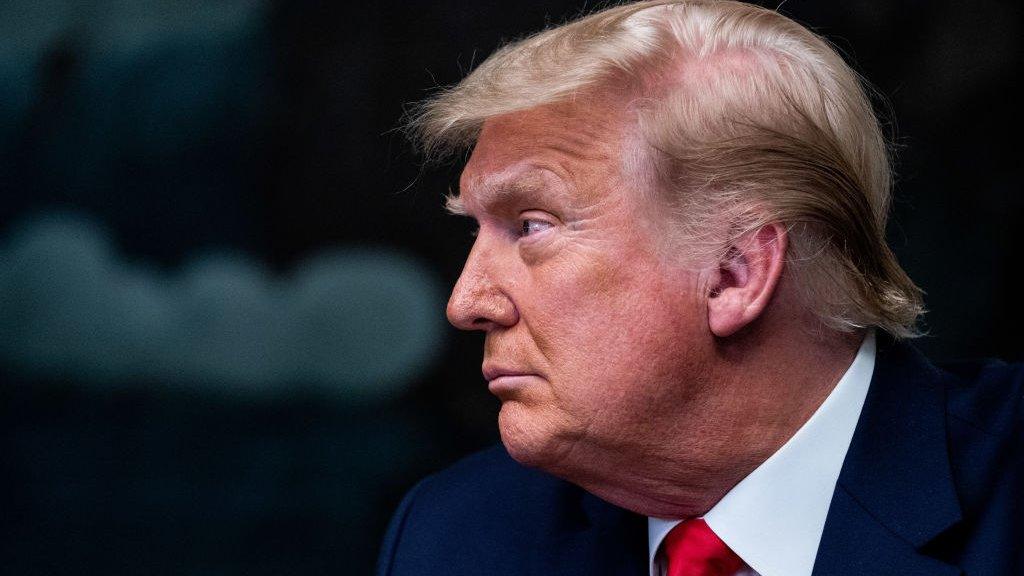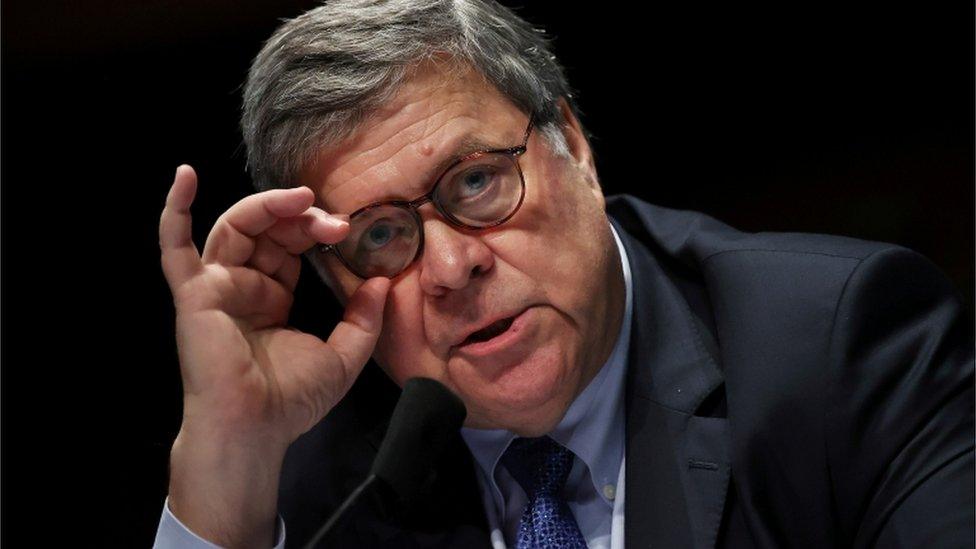Trump campaigns in Georgia amid crucial Senate race
- Published
Donald Trump: "If I lost, I'd be a very gracious loser"
US President Donald Trump has held his first rally after losing the US presidential election.
The event in Georgia comes before key Senate runoff elections there in January, which will decide control of the upper house.
Joe Biden is the first Democratic candidate to win the state in a presidential election since 1992.
Mr Trump has repeatedly refused to admit his defeat and made numerous unsubstantiated claims of voter fraud.
Ahead of the rally he criticised Georgia's Republican governor on Twitter, calling on him to help overturn Joe Biden's election victory in the state.
In his speech on Saturday, however, the president seemed to admit his loss, claiming his foreign policy measures could be reversed under the incoming Democratic president-elect. Under the US constitution, Mr Biden will take office on 20 January regardless of whether Mr Trump admits defeat.
Mr Biden won the presidential election with 306 votes in the electoral college - the system the US uses to elect a president - to Mr Trump's 232. The college will meet on 14 December to formalise the outcome.
What did Trump say?
Appearing in Valdosta, Georgia, for his first rally since the 3 November vote, Mr Trump again made claims of electoral fraud and attacked Governor Brian Kemp.
Mr Trump has alleged throughout the election that the increase in postal ballots had led to widespread fraud, but there has been no evidence of this.
In a speech nearly two hours long - nominally to support two Republican Senators campaigning for re-election - President Trump told the cheering crowd that he could still win the election. Repeating his unsubstantiated claims, he said "they cheated and rigged our presidential election but we'll still win it", adding that Mr Kemp should "get a lot tougher".
The crowd - many waving "Make America Great Again" posters - chanted "Stop the steal" and "Four more years".
Despite the euphoria of the event, some Republicans are concerned that the president's continuing allegations of fraud will discourage his supporters from voting in the Senate races by falsely convincing them that the system is rigged.
Georgia's Secretary of State Brad Raffensperger, a Republican, said on Wednesday that no evidence of widespread fraud had been found to support Mr Trump's claims.
An election official in the state, Gabriel Sterling, also a Republican, has urged the president to tone down his fraud claims, saying they were inciting violent threats.
"This has to stop... someone's gonna get killed": Mr Sterling calls on President Trump to condemn the threats
The rally came after Mr Trump reportedly called Governor Kemp on Saturday morning and asked him to demand an audit of absentee ballot signatures, according to the Washington Post. Mr Kemp - who has no power to order such an audit - turned down the requests, a source told the newspaper.
Then on Twitter, the president turned up the pressure on the governor, saying: "I will easily & quickly win Georgia if Governor @BrianKempGA or the Secretary of State permit a simple signature verification ... Why are these two 'Republicans' saying no?"
Mr Kemp tweeted back that he had "publicly called for a signature audit three times", to which Trump responded by calling for a special session of the state legislature.
Someone reportedly familiar with the call told CNN that Mr Trump told Mr Kemp to call the special session and convince legislators to pick electors who would support him.
Under the US electoral college system, people vote for a president and then state electors - roughly in line with the population of their state - formally give their electoral college votes to a candidate.
Why are Republicans campaigning again in Georgia?
The state has two separate Senate races under way ahead of runoff elections on 5 January and both have a Republican incumbent squaring off against a Democratic newcomer.
Senator David Perdue, 70, will compete against Jon Ossoff, 33, a documentary filmmaker.
Senator Kelly Loeffler, 50, is facing off with Reverend Raphael Warnock, 51, a senior pastor at an Atlanta Baptist Church.

Republican Senators Kelly Loeffler and David Perdue listened as President Trump addressed the crowd
Recent polls show Mr Warnock pulling ahead of Ms Loeffler and the Perdue-Ossoff race in a dead heat.
Mr Trump's Republican party currently has a slim majority in the upper chamber, and a victory in the run-offs would allow it to counter the Democratic administration of President-elect Biden.
However, if the Democrats win the two remaining seats, they would control half the seats in the Senate - and the vice-president would be able to act as a tie-breaker.
The Democrats already control the lower chamber - the House of Representatives.
Related topics
- Published23 December 2020

- Published30 November 2020

- Published2 December 2020
